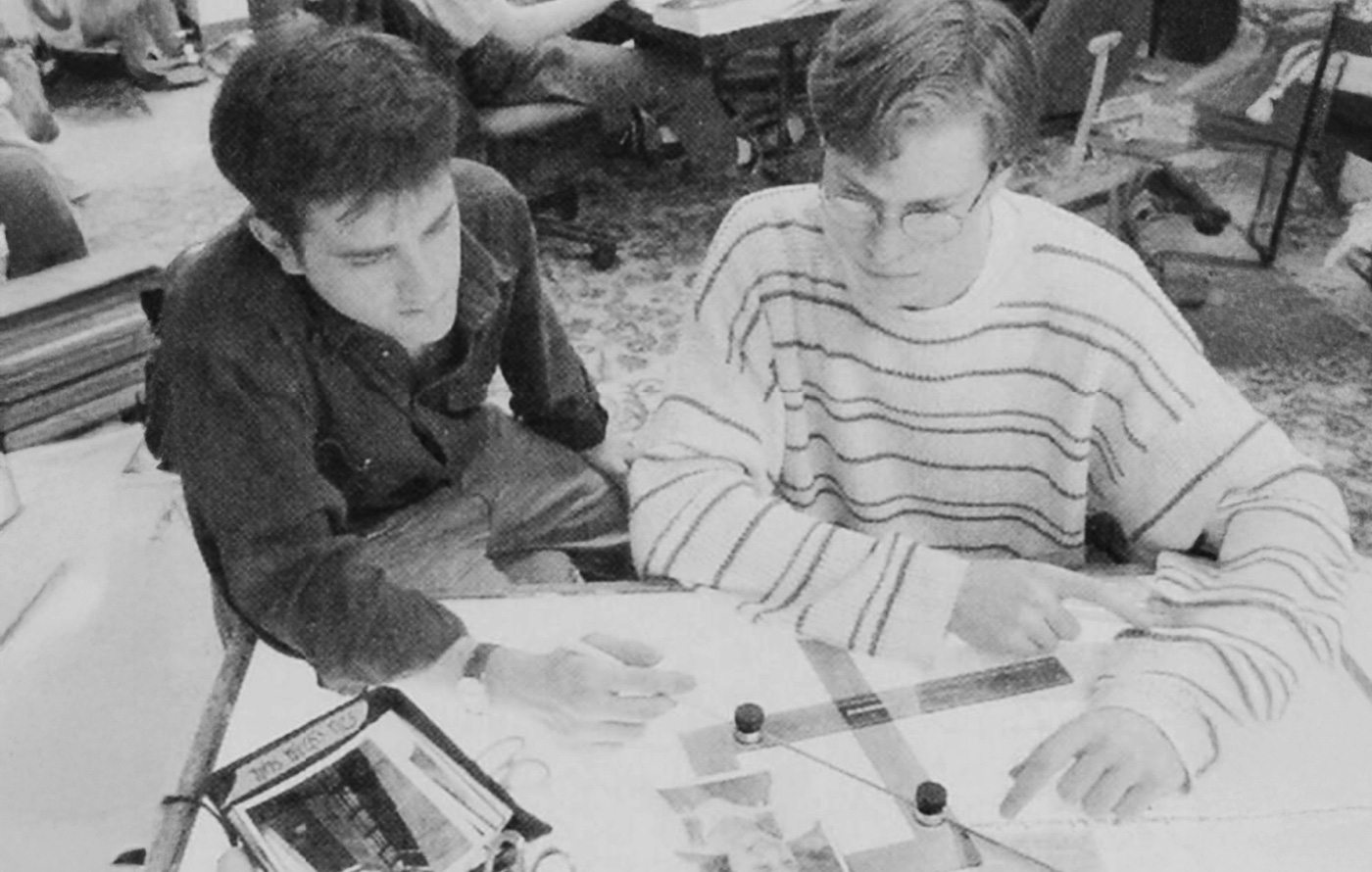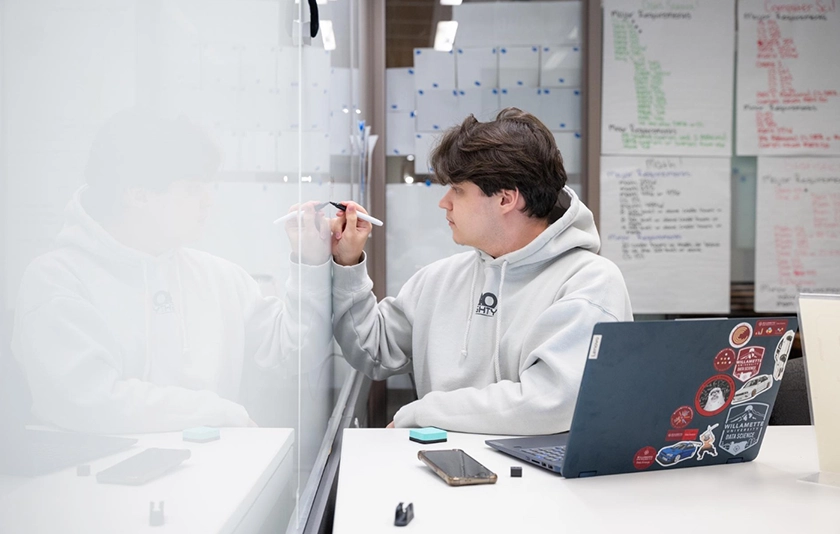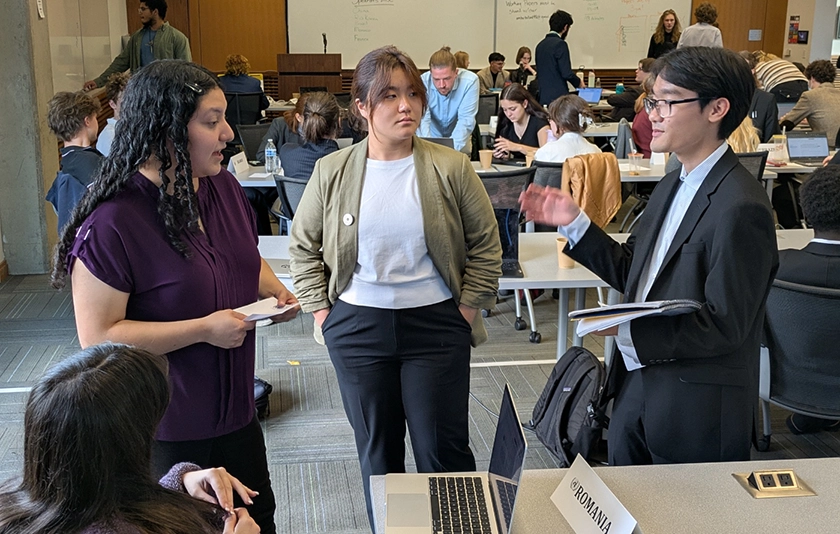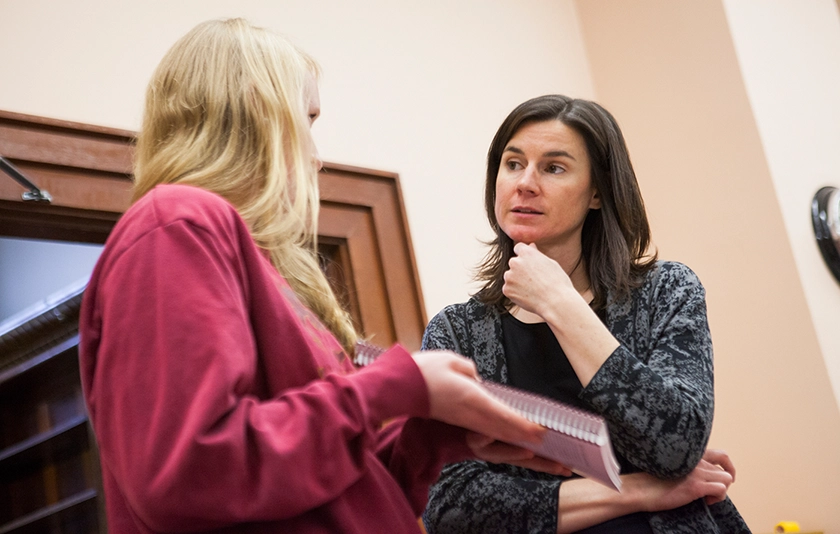When Willamette University’s Salem campus was hit with one of the worst floods in Oregon’s history in February of 1996, The Collegian student newspaper jumped into action. Despite spending the previous night sick with food poisoning, then-Editor in Chief Ryan Teague Beckwith BA’97 knew that The Collegian would need to turn around a special edition in record time.
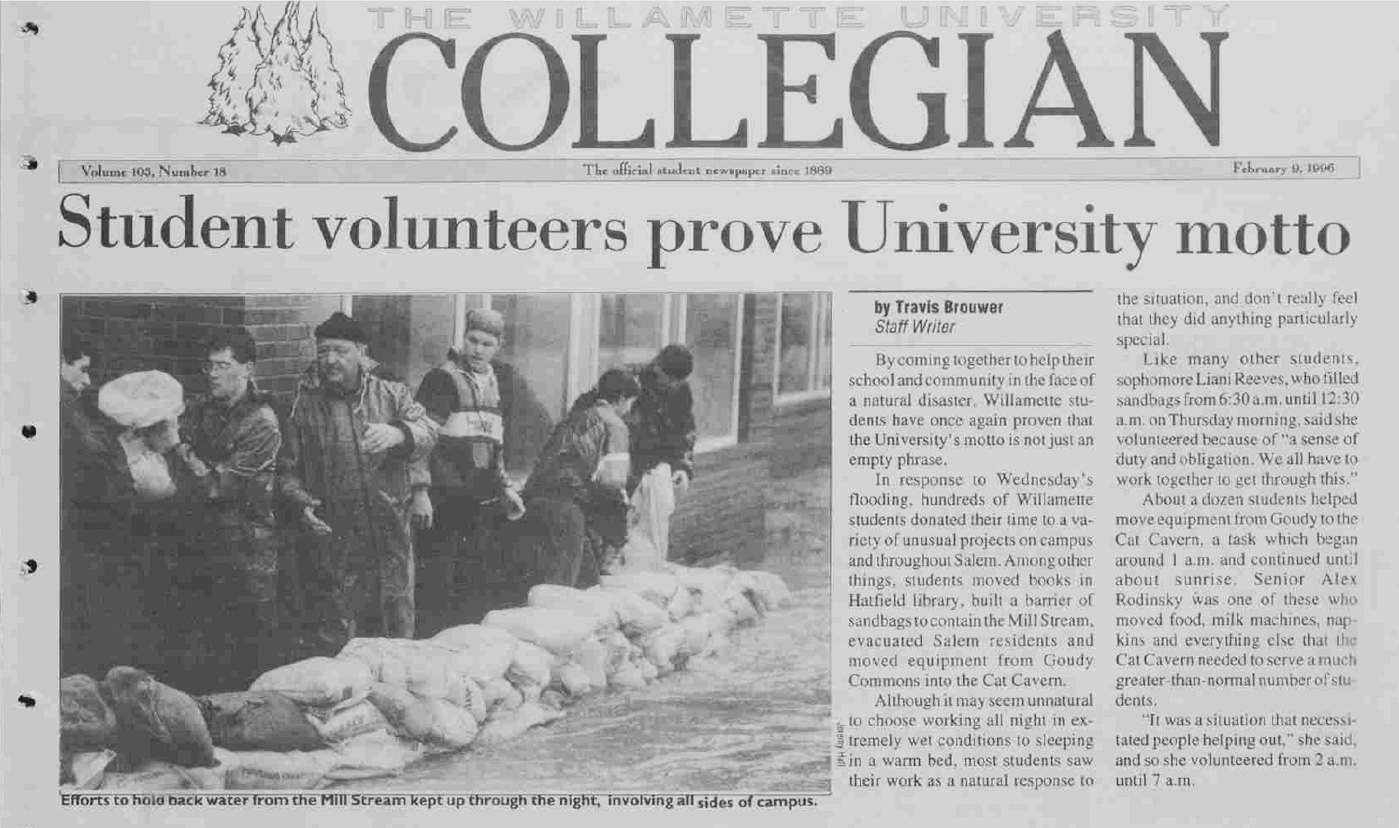
“I just skipped all my classes and we threw out the whole paper we were working on and spent the whole day putting out a special edition,” Beckwith recalls. He drove all night through flooded roads to hand-deliver the proofs to the printer.
The Feb. 9, 1996 special edition led with the headline “Student volunteers prove University motto,” featuring stories of students laying sandbags, saving books from the Mark O. Hatfield Library, and rescuing Salem residents from the floodwaters. Opinions Editor Mark Furman BA’96 penned an editorial cheekily titled “Flood waters baptize campus,” and Copy Editor Erik Holm BS’96 provided historical context, comparing the floods to previous natural disasters.
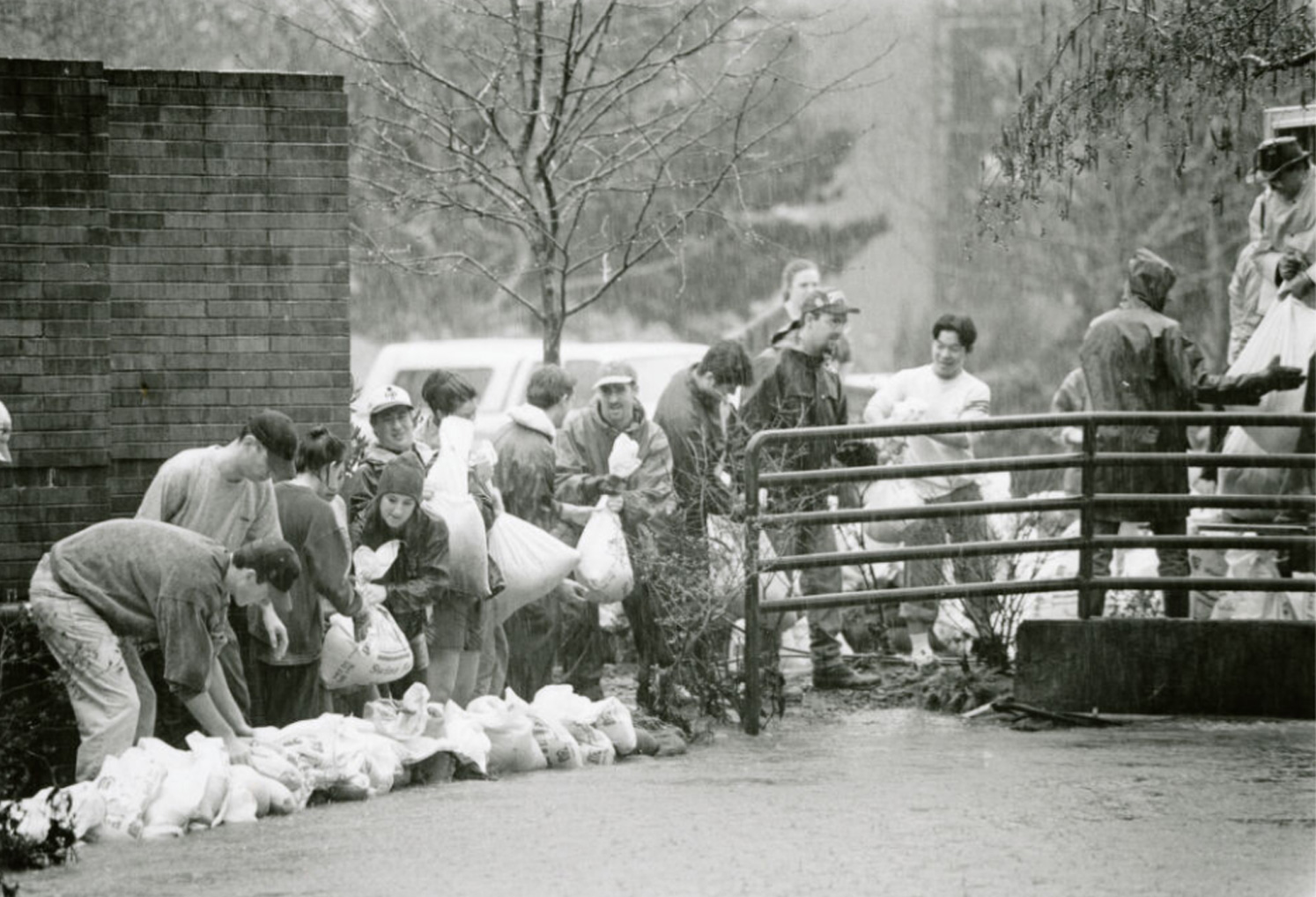
Willamette’s Collegian: a launchpad for careers
Nearly three decades later, Beckwith, Furman, and Holm have turned their experiences working together at the school paper into lifelong careers in journalism, writing, editing, and leading at some of the nation’s top news outlets.
Looking back, the three friends say the long hours spent in The Collegian offices laid a strong foundation for their success.
Holm, now a Deputy Editor at The Wall Street Journal, pursued graduate school at the Columbia University School of Journalism after graduating from Willamette. When he arrived in New York, he found that his practical experience in The Collegian newsroom had paid off.
“I definitely learned some things at Columbia, but one of the main things I learned in graduate school was that I already knew what I was doing. The reason I knew what I was doing is because I'd been doing it at Willamette,” Holm says.
Furman got his start in journalism when he turned down a study abroad program to stay in Salem and write an opinion column at the paper. The following year, Beckwith created the role of Opinions Editor with Furman in mind.
“That set me up to have all of the different skills to run a small community newspaper,” Furman says. “A couple of years later, I'm running an editorial board and writing the unsigned editorials for a newspaper.”
Furman built on these skills at local news outlets and media companies throughout the Pacific Northwest. He later served at the forefront of digital news and helped train the next generation of journalists at the University of Oregon.
For Beckwith, a journalism career at outlets like Time Magazine, Bloomberg, and MSNBC began with a medical incident in Goudy on campus. He wrote a story about the event and pitched it to The Collegian editor that same day, who helped him revise and publish the piece. Soon, Beckwith was receiving off-the-record news tips as a campus beat reporter.
“This is what's great about college newspapers,” Beckwith says. “I'd never done any journalism, and then, day one, I'm getting late-night phone calls.”
That year, Beckwith watched Holm get promoted to Editor in Chief, which inspired him to apply for the job of News Editor. The experience taught him how to lead a newsroom.
“I learned so much in that newsroom — from having to make decisions to writing stories. And it's so much more valuable than if I'd just studied journalism,” Beckwith says.
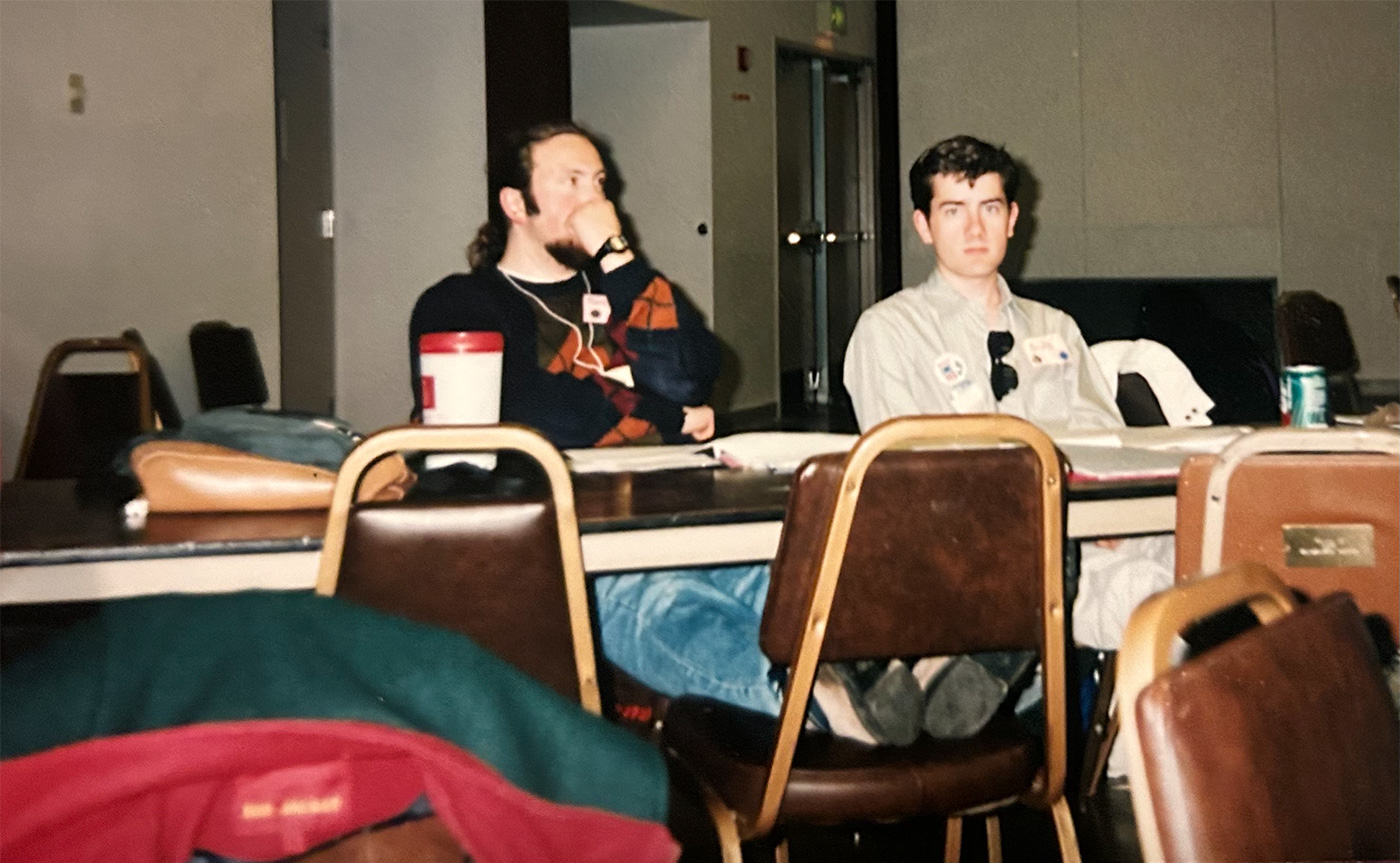
These student journalists also served in the first class of Willamette Writing Center consultants, where they put their editorial skills to work helping fellow students with their class papers. The rich writing skills they developed outside and inside the classroom prepared them for the rigors of journalistic writing. Furman found that his experience at The Collegian, combined with his Willamette coursework, helped train him to learn quickly and think flexibly about a range of topics — a key skill for a journalist.
“That's what journalism is all the time,” Furman says. “Here's another subject I know nothing about, time to figure out enough about it that I can explain it to other people.”
Holm says that such skills help professionals stand out in the workplace.
“Even for people who don't go into journalism, knowing how to write quickly, accurately, and clearly as a journalist is a skill that not everyone else has,” Holm says.
A chance encounter amid chaos
A few years after graduation, Beckwith followed Holm to Columbia, which is how they both ended up at ground zero, the scene of the Sept. 11, 2001 terrorist attacks in New York City.
Both remember the horror of that day. “It was the only day I didn’t want to be a reporter in my career. The scale of it was just too much,” Beckwith says.
Beckwith was reporting within the police perimeter when he turned a corner — and there was Holm. The traumatic experience was lightened by the chance encounter between old college friends.
“It sounds like a crazy coincidence,” Beckwith says. “Of course, we're both reporters, so we both ran towards it. We were both in New York at the time. But just the odds of one Collegian editor running into another steps away from the former World Trade Center, it was exactly what I needed in that moment.”
Enduring ties
Thirty years after graduation, the three former editors of The Collegian have continued to support each other, buoyed by the rich leadership and journalism experiences they gained in the newsroom at Willamette.
Beckwith hopes today's students take advantage of the same opportunities he did.
“I'm always saying, if you are still in college, go write for your student paper,” he says. “It doesn't matter if it's any good. It doesn't matter if it wins awards or no one reads it. Just go, because your college paper is the most closely tied to your community that you will ever be in your career.”
